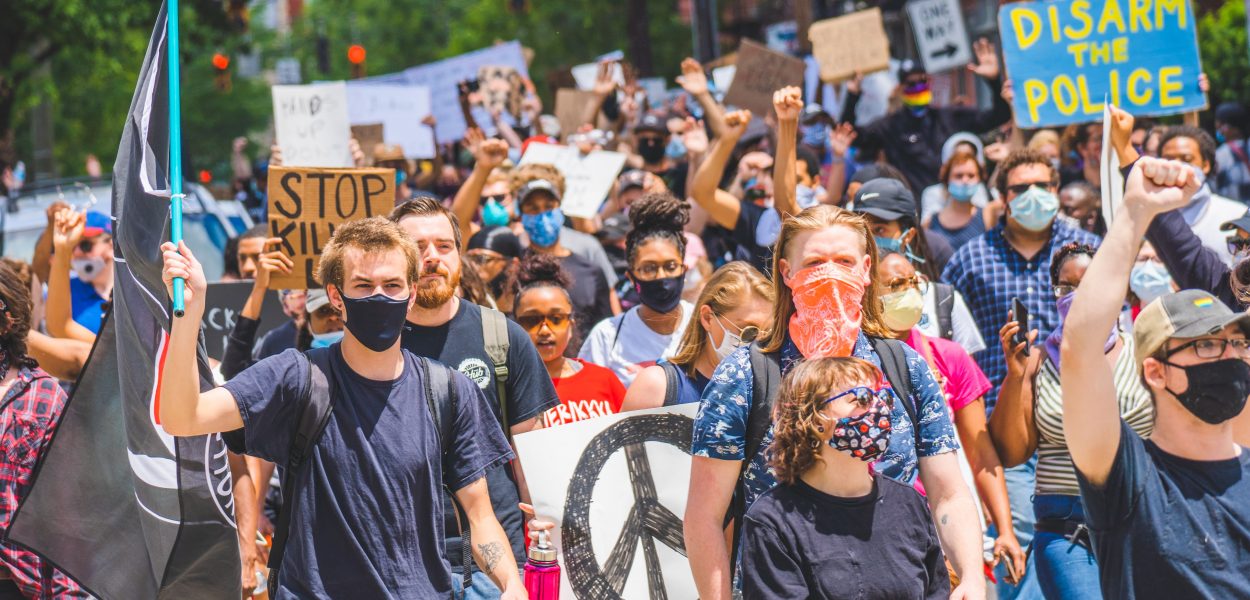3 June 2020
How to talk to teens about George Floyd.
Posted in Church Ministries / Family Space / Parents & Carers / SU QLD / Teens and Young Adults
“He has told you, O man, what is good; and what does the Lord require of you but to do justice, and to love kindness, and to walk humbly with your God?”
Micah 6:8
This week the world has again witnessed injustice and cries out for restoration.
Many of us will have experienced a visceral response to the events broadcast on our screens and devices over this past week. I feel; grief, anger, disappointment, guilt, hope, anxiety, and remorse as I try to comprehend what I have seen and heard and determine how I should respond.
You may be wrestling with similar concerns. I know many young people are.
So how do we help teenagers make sense of George Floyd’s death and the unravelling events of the past week?
We create opportunities for young people to express and talk about their thoughts and feelings in the safety of relationship. Teens look to trusted adults for guidance on how to respond in traumatic moments such as these.
The expectation is not to have all of the answers (I am well aware that I don’t), and it’s not to be a professional helper. You just need to care enough to listen and to ask them some questions. Be willing to have a conversation.
Here are some guiding principles to help you talk to your teens about George Floyd.
Make time and do not rush. Time = Value. As a parent or caring adult, we demonstrate the value of our teens by the time we give to them. Difficult topics of conversation require extra time to allow each person the opportunity to understand and be understood.
Acknowledge and normalise feelings/responses. Teens are forming their identity; they are looking to trusted adults, and peers to gauge what is “normal” and where they belong. Creating a non-judgmental space for teens to express themselves reinforces their sense of belonging and identity.
Be honest. It is okay not to have all the answers, and to process your experiences. The best way for teens to learn this is to have it modelled by those closest to them. Teens need to see and hear you do the journey. Note: you may need to measure your level of disclosure depending on your teen’s mental/emotional capacity.
Encourage empathy and compassion. Identifying with another and seeking to understand their perspective helps us build relationship and work more effectively with others. Compassion (acting from empathy) is a powerful tool in addressing trauma and injustice.
Draw focus from concern to areas of influence. There is a lot in the world to cause worry and some of it is outside our control. The good news is, Our teens often have a very strong sense of justice and they have an extraordinary amount to offer to the world. Actively engaging our young people with people and projects who are currently bringing hope, will in turn bring them hope. Maybe you could join them in making a difference by getting involved in a local project? Organisations such as World Vision, TEAR and ZOE are just some of many which have youth focused campaigns that may be of interest.
If you are unsure how to start or have a helpful conversation with your teen here is a question roadmap. Feel free to reword questions to suit your personal style.
- What have you seen/heard/felt/experienced? (Break these down into separate questions.)
- Of your answers to the above questions, what has affected/impacted you the most?
- What might you think/feel if you were in …’s (insert different roles, e.g. police, protestor, witness, victim) shoes?
- What could we/others assume about the situation/people involved? Are those assumptions correct? How do we know?
- What do you think this all means?
- How does that (refer to Q5) apply to your life/work/school/community?
- Now what can/will you do?
- How can I help you?
It is important that we all have an opportunity to process what we experience and find a way to make that experience mean something. My hope for this moment is that we remember what is required of us as sons and daughters of God – to do justice, to love kindness and to walk humbly with our God.
About the author…
 Tess is a former school chaplain and youth pastor with 15 years of experience in youth work. She now serves as SU QLD’s Children and Youth Program Team Leader, delivering training and professional development to chaplains and youth workers. She holds a bachelor of communications and diploma of youth work.
Tess is a former school chaplain and youth pastor with 15 years of experience in youth work. She now serves as SU QLD’s Children and Youth Program Team Leader, delivering training and professional development to chaplains and youth workers. She holds a bachelor of communications and diploma of youth work.




